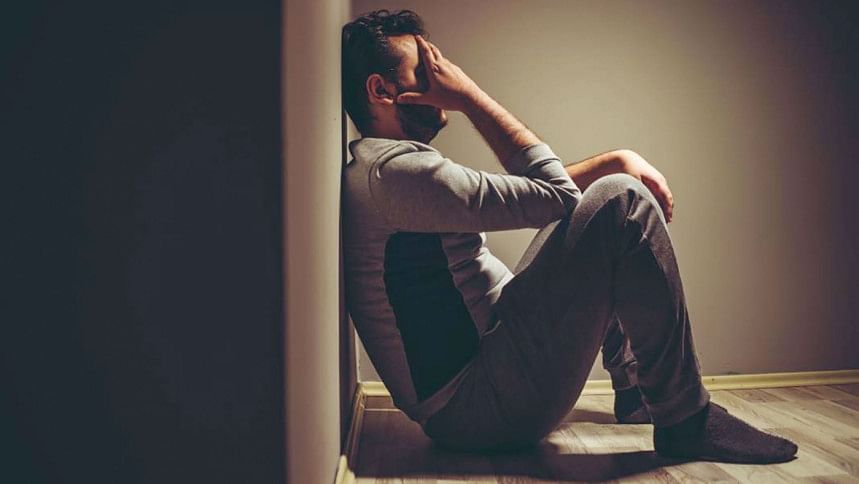Know the physical symptoms of depression for better management

Depression can affect not only your mental state but also your physical health.
Sleep problems: Individuals who are depressed may experience difficulty sleeping, either struggling to fall asleep or waking up frequently. On the other hand, some people may sleep excessively.
Chest pain: Chest pain should be evaluated by a doctor to rule out potential medical issues. However, it can also be a symptom of depression and may increase the risk of heart disease, particularly in those who have had heart attacks.
Fatigue and exhaustion: Fatigue and exhaustion are common symptoms of depression, making it difficult to perform everyday activities, even after resting or sleeping for long periods. Experiencing chronic pain increases the risk of depression, and conversely, depression can cause pain as the two conditions share chemical messengers in the brain.
Aching muscles and joints: Living with chronic pain can increase the likelihood of developing depression. This is because the experience of constant pain can be exhausting and limit one's ability to carry out daily activities.
Additionally, depression and pain share chemical messengers in the brain, which can exacerbate both conditions. People who are depressed are three times more likely to experience regular pain, further highlighting the link between the two conditions. It is essential to seek professional help to manage both pain and depression to improve overall well-being.
Digestive problems: The brain and digestive system are closely linked, which means that stress and anxiety can lead to physical symptoms such as stomach-aches or nausea. Similarly, depression can also impact the gut, causing symptoms such as indigestion, diarrhoea, constipation, or nausea.
Headaches: Research indicates that there is a strong link between major depression and migraines. In fact, one study found that individuals with major depression are three times more likely to experience migraines, while those with migraines are five times more likely to develop depression. The exact nature of this relationship is not yet fully understood, but it is thought that the two conditions may share similar underlying biological mechanisms.
Changes in appetite or weight: Depression can have a significant impact on appetite and eating behaviours. Some individuals may experience a loss of appetite and have little interest in food, while others may find themselves overeating and struggling to control their intake. These fluctuations in eating habits can result in weight gain or weight loss, which can further contribute to feelings of low energy and self-esteem.
Depression has also been linked to the development of eating disorders, such as bulimia, anorexia, or binge eating disorder. These conditions involve problematic relationships with food and can have serious physical and mental health consequences. It is essential to seek professional help to manage both depression and eating disorders to improve overall health and well-being.
Back pain: Chronic pain can lead to depression, while depression can increase the likelihood of intense, disabling neck or back pain by four times.
Agitated and restless: Sleep issues and other depression symptoms can lead to irritability. Depression-related irritability is more common in men than in women.
Sexual problems: Depression can decrease your sex drive, and certain antidepressant medications can also affect sexual desire and performance. It is important to discuss medication options with your doctor if you experience these side effects.
Regular physical activity can release brain chemicals that improve mood and reduce pain sensitivity. While not a cure, it can help ease depression over time, alleviate fatigue, and improve sleep. Despite feeling low on energy, trying to incorporate exercise into your routine can be beneficial.

 For all latest news, follow The Daily Star's Google News channel.
For all latest news, follow The Daily Star's Google News channel. 



Comments